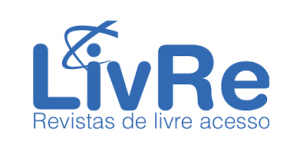A A DIGNIDADE DA PESSOA HUMANA E OS DIREITOS HUMANOS NO SISTEMA PRISIONAL DA CIDADE DE GOIÂNIA ENTRE 2016 E 2019
Resumo
Este artigo apresenta uma discussão teórica sobre a dignidade da pessoa humana e os direitos humanos no sistema prisional da cidade de Goiânia, entre 2016 e 2019, que tem como objetivo analisar a gestão prisional municipal de Goiânia sob a ótica da dignidade da pessoa humana. Tendo como base o levantamento de várias bibliografias realizado através de buscas em dados virtuais e sites jurídicos, especificadamente no Jus Brasil, âmbito Jurídico, Direitos humanos, Constituição Federal (1988). Nessa perspectiva, tendo em vista a emergência e aumento desse olhar detalhado nesse contexto de direitos humanos, há uma crescente responsabilidade social e jurídica quando se trata da atual situação carcerária em Goiânia, quesito que tem aberto debates de relevância moral e social não só para sociedade como um todo, mas também na pessoalidade e individualidade de cada um.
Downloads
Publicado
Como Citar
Edição
Seção
Licença
Copyright (c) 2022 A REVISTA REFLEXÃO E CRÍTICA DO DIREITO utiliza uma licença Creative Commons - Atribuição-Não Comercial BY-NC 4.0 Internacional. Os autores dos trabalhos aprovados autorizam a revista a, após a publicação, ceder seu conteúdo para reprodução em indexadores de conteúdo, bibliotecas virtuais e similares. A revista se permite o uso dos trabalhos publicados para fins não comerciais, incluindo o direito de enviar o trabalho para bases de dados de acesso público.

Este trabalho está licenciado sob uma licença Creative Commons Attribution-NonCommercial 4.0 International License.
A submissão de artigos à REVISTA REFLEXÃO E CRÍTICA DO DIREITO está vinculada à licença da Creative Commons CC BY-NC 4.0 internacional. Através desta licença, o autor mantém seus direitos autorais, mas permite, para fins não comerciais, que as pessoas possam copiar e distribuir o seu trabalho, reservando os respectivos créditos, nas condições especificadas.
Ao submeter artigos à REVISTA REFLEXÃO E CRÍTICA DO DIREITO o (a) autor (a) já autoriza sua publicação, em caso de aceitação, após o devido processo de avaliação, ciente da política de acesso livre do periódico.
O autor (a) declara ciência de que serão publicadas todas as informações consignadas na submissão, incluindo nome, afiliação, titulação e endereço eletrônico.
Da mesma forma, o interessado, ao submeter o trabalho no site da revista, DECLARA QUE É AUTOR (A) DO TRABALHO, BEM COMO DO VÍNCULO DAS DEMAIS PESSOAS TAMBÉM APONTADAS COMO AUTORAS, assumindo inteira responsabilidade por tais declarações.
O periódico não cobra nenhum tipo de taxa. Todas as submissões, avaliações e publicações são gratuitas, bem como o seu acesso é aberto e também gratuíto.







